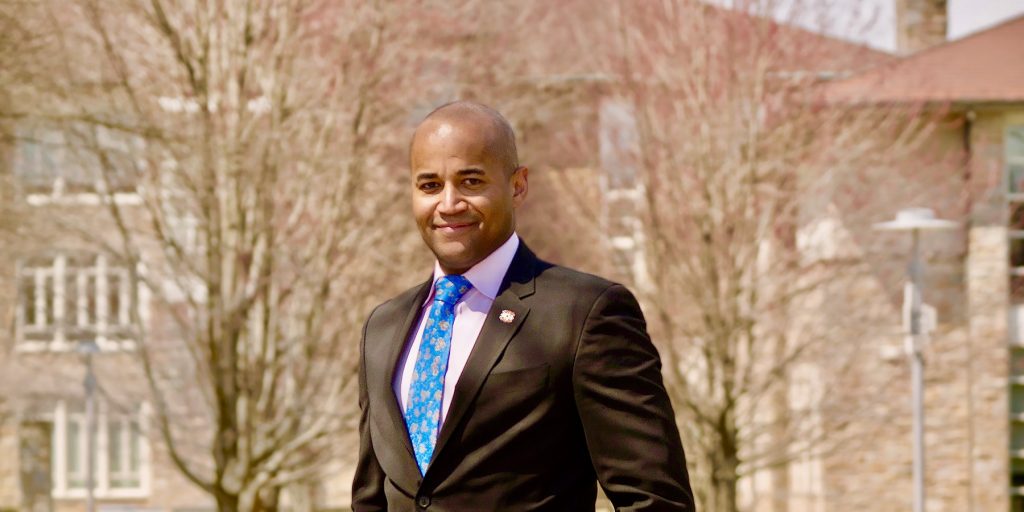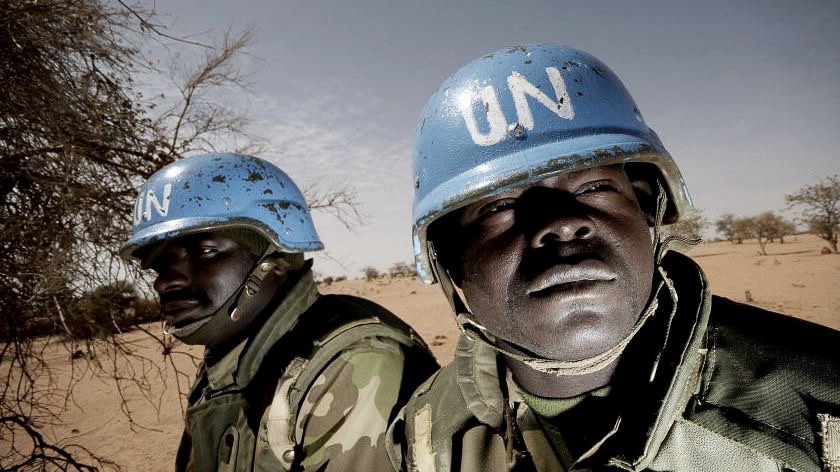Washington based Africa centre for strategic studies almost wrote a formula revealing that for every half a degree celsius of local temperature rise, conflict risks in the region rises by 10-20%. Climate change remains a very thorny issue globally and evidently had it not been for the COVID19 pandemic, it would still rank as the worlds top risk. One renowned risk practitioner and famous co-book author of Global Risk Agility and Decision Making Dante Disparte serving as Chief Strategy Officer and Head of Global Policy at Circle, advised that climate change be viewed as a close parallel to COVID19 calling it a risk of risk, a risk that when it does manifest bearing in mind that it is not only attritional but is acute in answering how climate change can affect an economy.

Dante Dispartes co-author of Global Risk Agility and Decision Making.
“To begin, I want to acknowledge that, like the global response to the COVID-19 pandemic, where in effect we are as strong as our weakest links, climate change poses a similarly urgent challenge requiring coordinated global action and solidarity. For the world to rise to the occasion of arresting the spread of COVID-19 and responding to climate threats, U.S. leadership is a necessity. Indeed, we could draw close parallels between pandemic preparedness and mounting a concerted response to climate change, particularly as it affects vulnerable populations and developing and emerging countries disproportionately. Extract of Disparte’s testimony to congress.
This comes well ahead of US Secretary of State Antony Blinkens visit to Africa to address climate change and continued attacks in Kenya, South Sudan, Somalia and Nigeria.
“Climate change will amplify pre-existing vulnerabilities and pre-existing structural problems and in the context of Africa would increase the likelihood of infectious disease spread, likelihood of continued climate change refugees and human displacement and will exacerbate the likelihood of pre-existing vulnerabilities politically and otherwise,” Disparte said in a BBC interview Business Matters segment.
The United States – US under the new Biden administration has retaken its seat and conversation at the global climate change table a contrary view to what the Trump administration held gyrating between calling climate change a hoax and acknowledging its existence.
“The crux of the problem is that status quo is not a strategy anymore than it is a position. It would be the equivalent of trying to put smoke detectors in a house when on fire. By the time smoke detectors go off its too late. The climate crisis has close echoes to pandemic preparedness globally and the fact that many countries ran out of N95 masks, very basic medical equipment like ventilators and oxygen supply shows you a lot about the state of readiness before the crisis happened. It is costly to pay for a risk after the fact as such it is better to invest in risk resilience, pre-invest in addressing the root causes of these vulnerabilities ,” he said.
Some of the areas addressed in Dantes testimony to congress covered mobilization of more capital south of the Mediterranean, across Sub Saharan Africa – SSA. After the sun, talent and youth are the most valuable asset Africa has and the continent has appetite for entrepreneurship ingenuities which the US has a historical obligation to assist fund by investing in Africa. The connection lies in the premise that there can be no effective economic growth without energy. Africa’s has a massive energy challenge gap which remains an opportunity for investment by US firms in renewable energy, micro grids and to powering the continent which in-turn offers a platform for meeting of business objectives. This is not altruism or charity. Wether it is a concern about the north stepping in to rescue the south in a patronizing way but could hold true for the reverse when e.g. Zika carrying mosquitoes move north and COVID does not respect boundaries but the human toll of these risks will show up at borders and the better posture over the long haul will be to build business, opportunities and effectively get economies growing again.
The world has a corona virus response problem currently, in fact unequal around issues of vaccine nationalism this need addressing at scale across emerging markets. Whether or not the US and Chinese investments translate to neo-colonializm, the US remains embarrassingly indebted to Africa while Chine feel concerned about extending resources to Africa at a time when financing conditions are tight for smaller businesses while the world speaks debt forgiveness and interest free loans to the continent.
Issues in the renewable energy space will still hover arguably around building of dams and coal fired plants which are politically and environmentally questionable are growing and built to pace. At some level jurisdictions will have to take advantage of natural resource endowment to harness these energy building drives, however diversification would be the way to go than single source of failure power grids, Dante said.
About the author: Mutisunge Zulu is a Non Executive Macro Business Analyst of the Kwacha Arbitrageur a unit of the Business Telegraph simultaneously serving as National Secretary for the Economics Association of Zambia and Non Financial Risk Head for one of Africas banks.

